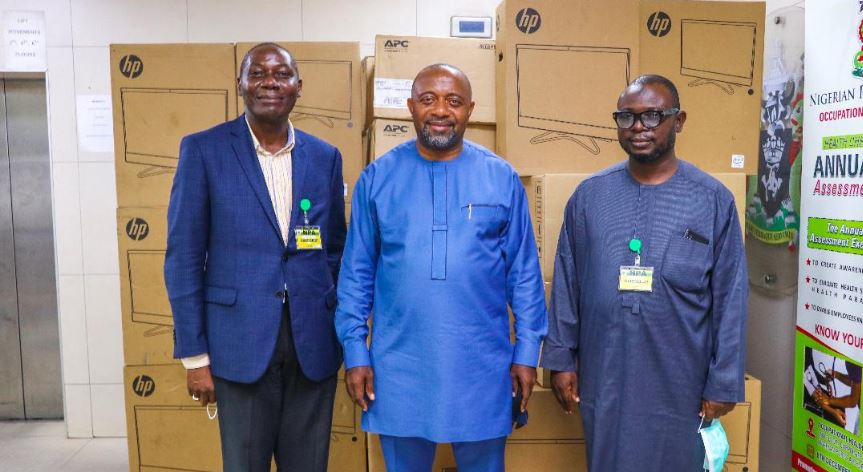Leading maritime industry analyst, Chief Executive Officer and Programme Director of Multi-Mix Academy, Dr. Obiora Madu has raised an issue of urgent national review, saying “The governments of our neighbouring countries are smart”.
Chief in Nigerian’s maritime neighbour has remained Benin Republic and to an extent, Cameroon, but emphasis is more on Cotonou Port in Benin Republic.
Explaining more in an interview, he averred that these neighbours prey on Nigeria’s poorly articulated and implemented maritime policies to rejig their yearly maritime and logistics year plan.
He said “They wait for us to finish our budget then they make their own because they rely a lot on our economy. The area they see our weakness is what they capitalize on so that goods can come in for them to make money out of it because they will also collect the charges at their port. Some ships will not agree to come to Nigeria because they will be delayed from continuing their journey. So that is the challenge”.
“God gave us very large coastal area but these vessels can’t even berth at any of your port because of the draught. All these challenges are doable until we decide to do things the way they are done elsewhere, then, we will keep getting the same results.
On the way forward in recovering lost opportunities and business to neighbouring maritime nations, Dr. Madu summed it up in few words; “It is just to do things properly”.
“I also want to appeal that government agencies work together. You need to know how much we are losing on processes that do not exist or do not work at the ports. In logistics, time is everything.
“Two agencies are probably quarrelling with each other while the business man suffers because his container stays long at the port. Collaboration is key and that is what rules the world today, you cannot be completely on your own and survive. Let us apply supply chain principle in the public sector.
On the importance of his institution, the Multi-Mix Academy, he recalled that “I have written articles to say instead of calling it a transport commission; we should call it a logistics commission because logistics is wider than transport. The issue is, we need a strategy to drive the sector”.
“We are well positioned in Africa to function as a hub but we can’t even handle ourselves not to think of acting as a hub for the neighbouring countries, some of them landlocked. We don’t have a strategy to take advantage of that opportunity. What does Singapore have? It is logistics.
“So the point is there is no regulation. In the United Kingdom, you can’t buy a truck, put it on the road and start carrying load. You must first register it because it is regulated and there is a certification. So, it is either you get the certification or you hire someone who has that certification before you can get the truck on the road. But here in Nigeria, it is just an all comers’ affair.
“Once you have enough money to get a truck, you put it on the road because nobody cares about the state of the truck. If things are as unregulated as they are in the industry, then, we will continue to get what we are getting.
“We need a policy in place and we need to regulate. How long have we been talking about this transport commission now? Just something that can happen within three to six months, we make it look like rocket science and seven years later, we are still talking about the same thing. As long as it is not regulated, it will remain the way it is.
“For example, before the coming of the Council for the Regulation of Freight Forwarding in Nigeria (CRFFN), once you carry nylon and go close to the port, you become a freight forwarder but at least for now, the profession has been sanitized to a large extent by the coming of the council.









